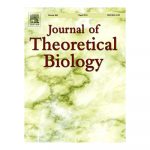Coupled dynamics of intestinal microbiome and immune system-A mathematical study
 An immune system sometimes causes an exaggerated response to harmless materials, such as pollens, eggs, and metals, which is known as an allergy. The regulatory T (Treg) cells suppress such allergic responses. Recently, it has been observed that intestinal microbiota have a close association with immune systems.
An immune system sometimes causes an exaggerated response to harmless materials, such as pollens, eggs, and metals, which is known as an allergy. The regulatory T (Treg) cells suppress such allergic responses. Recently, it has been observed that intestinal microbiota have a close association with immune systems.
For example, some strains of bacteria induce Treg cells by producing short-chain fatty acids, such as butyrate. Moreover, a sufficiently diverse T cell receptor repertoire of Treg cells is required to prevent inflammation of intestine driven by the commensal intestinal microbiome. In this study, we develop a simple mathematical model describing the dynamic interaction of T helper cells, Treg cells, and Treg-inducing intestinal microbes.
The proposed model may have multiple stable equilibria, and the allergic response is intense at the dysbiotic equilibrium, in which the Treg-inducing microbes are scarce. First, we search for the condition by getting rid of the stable dysbiotic steady state. Further, we examine different methods to reduce the allergic response at the equilibrium (which may be dysbiotic or non-dysbiotic).
Furthermore, we discuss the possible therapeutic interventions focusing on the intestinal microbiome to suppress the allergic immune responses.
Hara A, Iwasa Y.
J Theor Biol. 2019 Mar 7; 464: 9−20
doi: 10.1016/j.jtbi.2018.12.021
